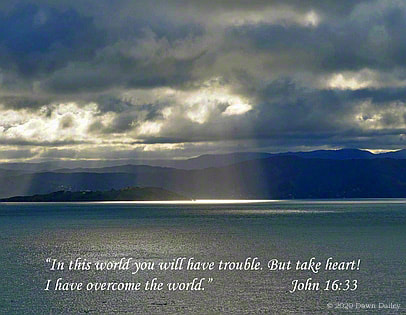We are living through unprecedented times. Turning on the news or reading the newsfeeds overwhelms us with the facts, statistics, as well as speculations and predictions of this global pandemic. Feelings of anxiety and fear threaten to overtake us as we just try to make it through another day.
Life as we know it has changed. For some of us, we or our loved ones have experienced first-hand this horrific disease. But for all us, we’ve experienced loss on some level.
Losses come in different forms. During these turbulent times, we may experience loss of work, loss of income, loss of food security, loss of health, and loss of social contacts. Daily routines are turned upside-down. Schools are closed. Work has gone virtual or is nonexistent. Visiting family and friends is taboo. Even regular exercise has changed. Perhaps the most pervasive loss is that of perceived control over our lives.
Grief is working through our sense of loss. Elisabeth Kübler-Ross, in her book On Death and Dying, identifies five stages of grief: denial, anger, bargaining, depression, and acceptance. While each loss may be different and have varying intensities, seeing losses through the lens of these stages is helpful. Often denial is the first stage, but as we begin to process our grief, we learn that these stages are not necessarily linear, and I would add, that we may not experience each stage with every loss.
In processing loss, we first need to acknowledge that we are indeed experiencing a loss. Identifying and naming the specific loss is helpful. After we acknowledge that we suffer a specific loss or losses, then we can begin to work through our grief.
Sometimes we get stuck in a particular stage in the grief process. Often depression is where folks get stopped and unable to move forward. With so many small and large losses, we can feel overwhelmed. And we lose hope.
Yes, life as we know it has changed. But this pandemic will not last forever. The more we practice shelter-in-place, social distancing, and good hygiene, the sooner we will come through this crisis. And when we do (not if, but when), life may look very different than it did before the pandemic. History tends to repeat itself. If the 1918 influenza pandemic teaches us anything, it shows us that the pandemic will end eventually. Life will go on. It may take a while to recover both physically, emotionally, and financially, but we will recover.
Taking the time to stop and process our thoughts and feelings is necessary. We absolutely cannot allow our feelings of fear and anxiety to rule. Focusing our minds on God and what He has to say about fear and anxiety gives us comfort and hope. Click here for a list of Bible verses previously posted on fear and anxiety. When we feel unable to tap into this power, we can seek out a trusted friend or a trusted professional (via Skype, Zoom, or FaceTime) who can help us wiggle out of the chains that emotionally bind us. When we work through our grief, we come out on the other side of it stronger and more resilient. And that, my friend, places us in a position of peace and hope.
In John 16, Jesus tells His disciples that He will be going back to the Father. He says that they will experience grief (at His crucifixion), but that their grief will turn to joy (at His resurrection). He comforts them by saying, “I have told you these things, so that in me you may have peace. In this world you will have trouble. But take heart! I have overcome the world.”
There is no loss too big that Jesus cannot overcome. There is no loss too painful that Jesus cannot heal. As we endure the impact of the coronavirus, may we take heart: Jesus has overcome the troubles of this world, including those caused by the pandemic.
Lord, You know my heart. Help me not give into fear and anxiety but to trust that Your plans never fail. Give me the hope that comes from knowing You indeed have and will continue to overcome the troubles of this world, now and always. Amen.
Coming soon!!!!!! My new devotional book on grief will be published in the very near future. Stay tuned for more information. In the meantime, check out my blogs on grief posted previously by viewing archives from July 2014 to September 2015. Click here to begin.
Want to subscribe to future posts? Click here.
Text and photograph copyright © 2020 by Dawn Dailey. All rights reserved. Photo of Fitzroy Bay, near Wellington, New Zealand.
All scripture quotations, unless otherwise indicated, are taken from the Holy Bible, New International Version®, NIV®. Copyright ©1973, 1978, 1984, 2011 by Biblica, Inc.™ Used by permission of Zondervan. All rights reserved worldwide. www.zondervan.com The “NIV” and “New International Version” are trademarks registered in the United States Patent and Trademark Office by Biblica, Inc.™

 RSS Feed
RSS Feed